Our Bioactive Peptides
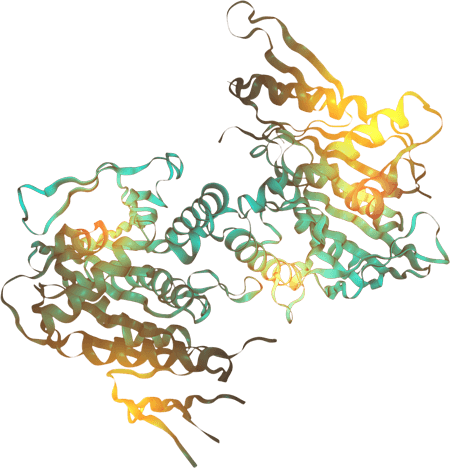
A glimpse of the future
Products?
No! Real solutions
We don’t sell products, we design concepts.
We solve problems and offer solutions through a continuous review and in-depth analysis of scientific literature, which provides the basis for rational peptide design.
Why choose us?
Our Bioactive Peptides provide innovative solutions to companies’ needs, by supplying therapeutic options for unmet medical needs.
Indeed, the rational design of our Bioactive Peptides makes it possible to develop novel and innovative treatments for use in a vast range of medical conditions.
Bioactive Peptides
Bioactive peptides can be defined as protein fragments with potential biological activities that act as hormones or drug. They are selective, efficacious and safe, and their good bioavailability makes them reliable alternatives to conventional therapeutic molecules. Moreover, peptides are easy to synthesize and optimize, properties that have attracted the attention of companies and researchers in recent years.
They can be classified according to their mode of action such as antimicrobial, anti-thrombotic, antihypertensive, immunomodulatory and antioxidative.
Compared to conventional research centers, the technologies used by Arta Peptidion make laboratory activities slicker and guarantee more reliable results in the discovery of new compounds, results that we optimize using the most advanced academic and scientific knowledge.
Applications
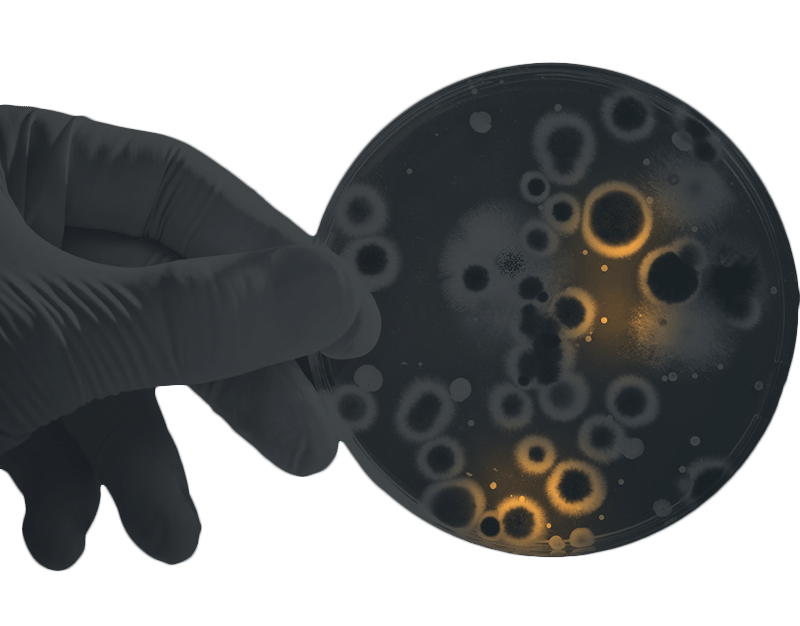
Microbial Drug Resistance
According to the WHO, antibiotic resistance is a major public health concern.
New resistance mechanisms are emerging and spreading globally, making it increasingly difficult to treat common infectious diseases.
In the near future, standard medical procedures such as organ transplants, heart surgery and chemotherapy treatments will become procedures with a high mortality risk.
More specifically, the overuse and the misuse of conventional antibiotics drives and accelerates the evolution of resistance.
Due to the emergence of new multidrug-resistant and extensively drug-resistant pathogens, significant investments in research and innovation are required in order to develop new classes of antimicrobial agents.
Antimicrobial Peptides and Lipopeptides
Over the past two decades, antimicrobial peptides have been considered possible candidates for novel antibiotics on account of their key role in the innate immune system.
Our antimicrobial peptides and lipopeptides provide patented innovative solutions against Gram-positive and -negative bacteria, as well as against yeasts and fungi, with low cyto- and hemo-toxicity and rapid membrane permeabilization representing just some of their strengths.
Anti-Biofilm Peptides
Biofilms are highly structured, sessile bacterial communities embedded in a self-produced matrix of extracellular polymeric substances.
Biofilms protect their inhabitants from various adverse environmental conditions, making them 10 to 10000 times more resistant to antimicrobials than their free-floating counterparts.
Our anti-biofilm peptides with enhanced amphiphilic profiles represent an exciting novel approach to the treatment of recalcitrant bacterial infections, both as primary agents and as synergic agents of conventional antibiotics.
Membranolytic Peptidomimetics
Peptidomimetic drug discovery has evolved to become an extraordinarily intriguing area of interdisciplinary research.
They can be considered small protein-like chains that are designed to mimic a peptide with an alpha-helix or β-sheet conformation.
Their special properties make peptidomimetics particularly interesting as bioactive agents.
Arta Peptidion is able to modify peptide backbone and side chain providing prototypic leads for the the design of secondary structure mimicry.
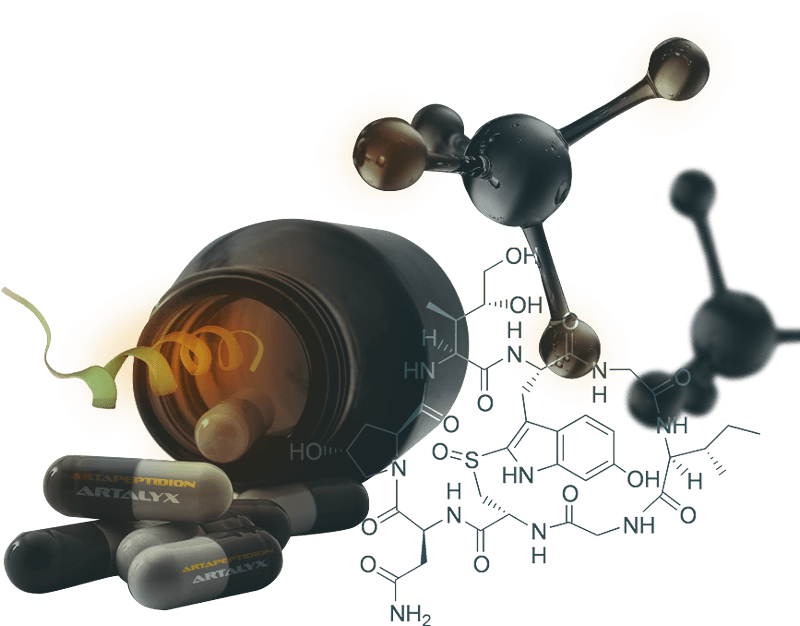
Pharmaceutical Applications
The utilization of bioactive peptides is becoming increasingly extensive due their intrinsic properties of high selectivity and versatility. They are also influential mediators in many of the body’s fundamental biological functions, and their unique status as low-toxicity compounds makes them advantageous for the treatment of many diseases.
The therapeutic indications for the use of these molecules are not limited to certain areas, rather they can be applied across a vast spectrum of medical disciplines, from dermatology to oncology, from microbiology to dentistry.

Inflammation
Non-steroidal anti-inflammatory drugs commonly used to treat inflammation are associated with acute side-effects, like gastric ulceration, bleeding, and, in some cases, thrombosis.
The non-steroidal anti-inflammatory drugs commonly used to treat inflammation are associated with acute side effects, such as gastric ulceration, bleeding, and, in some cases, thrombosis.
Over the past few years, there has been a surge of interest in studies on the natural anti-inflammatory peptides (AIPs) present in certain foods, spices, herbs, and dietary supplements/ nutraceuticals. Some natural AIPs have shown potent anti-inflammatory activity and reduce the chronic inflammation that characterizes a great many medical conditions.
Our anti-inflammatory peptides collectively known as ARTAKINE can be used as reliable therapeutic agents for inflammatory and autoimmune disorders.
Cancer
Cancer remains a major cause of mortality affecting millions of people.
In recent decades, great effort has been devoted to creating new therapies that are more selective and less harmful for patients. However, despite these efforts, the chemotherapy for bile duct or pancreatic cancer and metastatic melanoma is still inefficient.
Current chemotherapy regimens are also highly toxic, with a great many side effects, and myelosuppression and thrombocytopenia, mucositis and alopecia caused by non-selective targeting are common.
Membranolytic anticancer peptides represent a potential strategy in the fight against cancer.
Arta Peptidion designs and develops a range of membranolytic anticancer peptides.
Angiogenesis
Angiogenesis is a complex multistep process that involves extracellular matrix remodeling, migration and proliferation of endothelial cells, and morphogenesis of microvessels.
This process is fundamental in tumor growth, progression, and metastases, and there is considerable experimental evidence that tumor growth is dependent on angiogenesis. After a tumor has attained a size of 1–2 mm, further growth and expansion requires the induction of new blood vessels.
Anti-angiogenic peptides are therefore promising candidates in the treatment of cancer.
Our anti-angiogenic peptides provide attractive and innovative solution in the development of therapeutic peptide-based treatments against cancer.
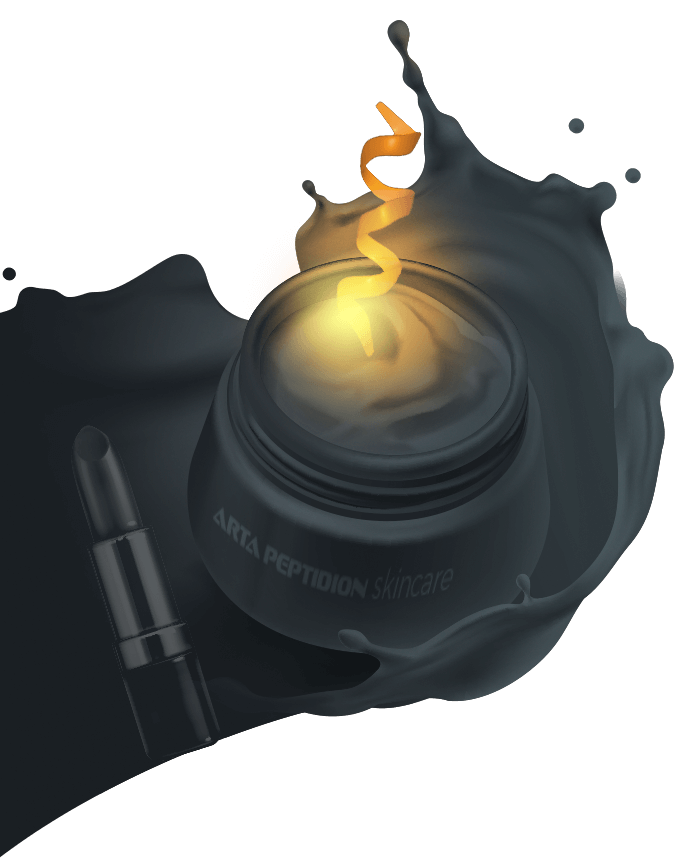
Skincare & Cosmetic
Thanks to improved consumer awareness, peptides are extensively accepted as natural molecules with well-defined actions and few, if any, undesired side effects, thereby making them attractive for many skin-related indications.
Synthetic bioactive peptides have become very important for the cosmetic industry. In an era of demographic shifts and an ageing population that wishes to maintain a youthful lifestyle and appearance, a great deal of cosmetic industry research focuses on anti-ageing skin treatments.
Arta Peptidion recently established a successful scientific partnership with AmbrosiaLab for the joint-development of health and wellness projects.
Anti-ageing
Skin ageing is a complex biological process influenced by combination of endogenous and exogenous factors that lead jointly to cumulative structural and physiological alterations and progressive changes in the various layers of the skin.
We possess the know-how to design synthetic peptides with anti-ageing properties. Peptides facilitate the repair of skin tissues, have a healing effect and stimulate macromolecules in the various layers of the skin. They are extensively used in anti-ageing cosmetics due to their ability to bind with various elements in order to promote skin regeneration.
Skin-lightening
Skin-lightening products form a major segment of the cosmeceuticals market worldwide and carry with them the promise of flawless skin. This demand for “skin-fairness” products stems from the desire to eliminate hyperpigmentation, melasma, and post-inflammatory hyperpigmentation, as well as a consumer interest in lightening the overall skin tone by using skin lighteners, whiteners, and brighteners.
Most skin lighteners currently in use are of a botanical or natural origin and have multifunctional topical benefits.
The tyrosinase enzyme is a key component for melanin production and represents a useful target in any effective skin-lightening formulation.
Arta Peptidion designs and develops innovative peptides that target other enzymes closely related to the melanogenesis pathway.
Neurotransmitter-affecting peptides
These bioactive peptides act in a similar way to botulinum toxin.
By inhibiting signal transduction pathways at the neuromuscular junctions, they reduce the formation of wrinkles due to repeated contraction of the intrinsic muscles of facial expression.
Our mimetic peptides, which are collectively known as ARTAXYLINE, target a novel protein dimer to weaken the innervating neuronal activity in order to reduce wrinkle intensity.
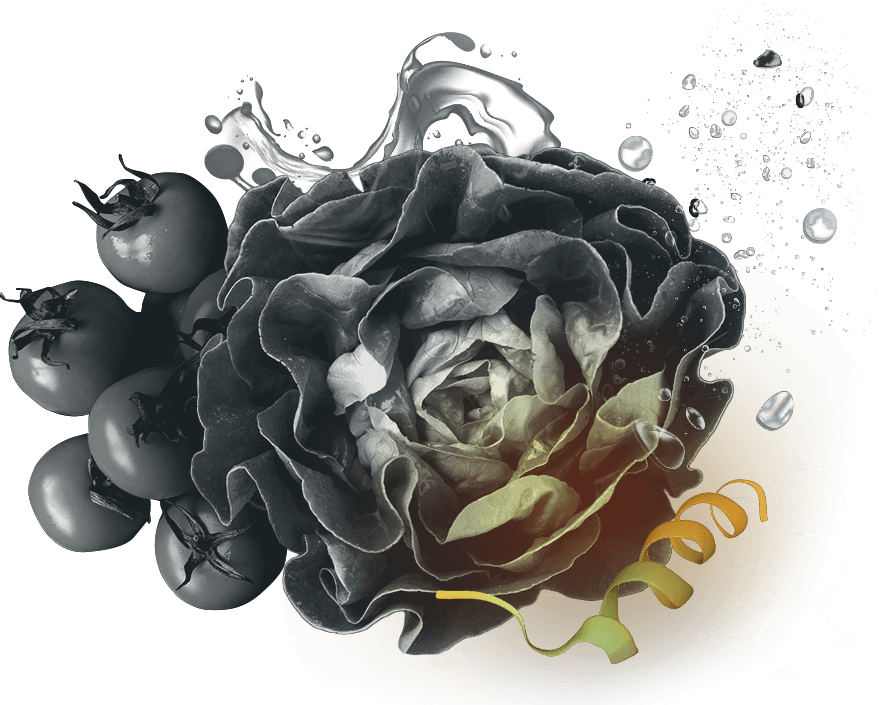
Food Industry
The food industry uses biocides to preserve foodstuffs and increase their shelf life. The use of chemical preservatives may have adverse effects on human health, hence there is a pressing need to identify new natural preservatives for use in food products.
The greatest problem in the food industry is the contamination of food by pathogens, such as Salmonella spp., Shigella spp., Micrococcus spp., Enterococcus faecalis, Bacillus licheniformis, Escherichia coli, Listeria monocytogenes, Staphylococcus aureus, Campylobacter jejuni, Yersinia enterocolitica, Vibrio parahemolyticus, Escherichia coli 0157:H7, and Clostridium botulinum.
Shelf Life Enhancement
Antimicrobial peptides can be used as bio-preservatives to extend the shelf life of food and enhance food safety. Using cationic antimicrobial peptides as preservatives brings several advantages, such as:
- They are safe for consumption because they are sensitive to the proteases present in the gastrointestinal tract;
- They are not harmful to the eukaryotic cells;
- They are characterized by broad-spectrum activity against food-spoiling microorganisms;
- They are generally resistant to pH and heat.
We have developed several antimicrobial peptides, which are collectively known as ARTALYXIN, characterized by broad-spectrum activity and high efficacy against food pathogens

Contact us
Arta Peptidion draws on the decades of scientific experience of its staff to provide its customers with global scientific support.
If you are interested in any of our products and services, please email us at info@artapeptidion.com. We strive to provide highly satisfactory products and services.


